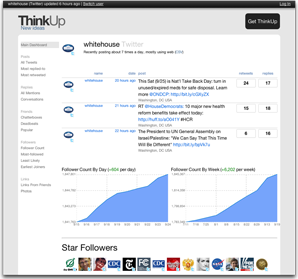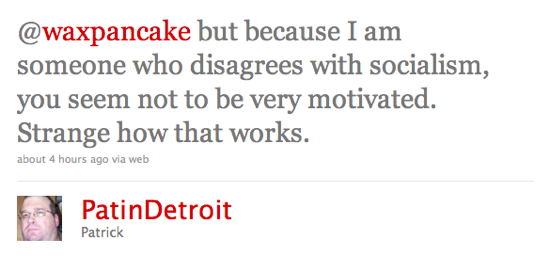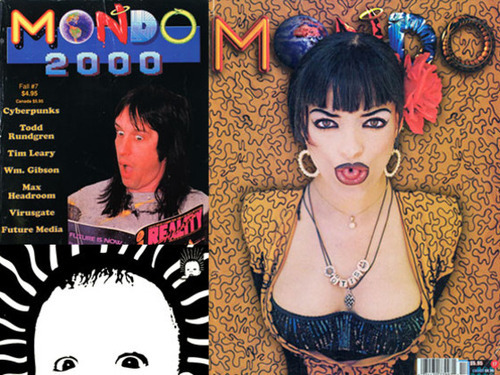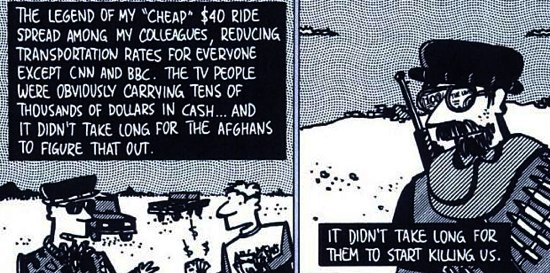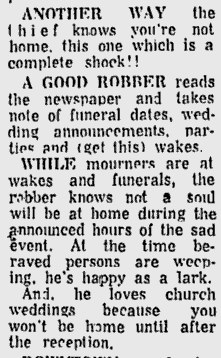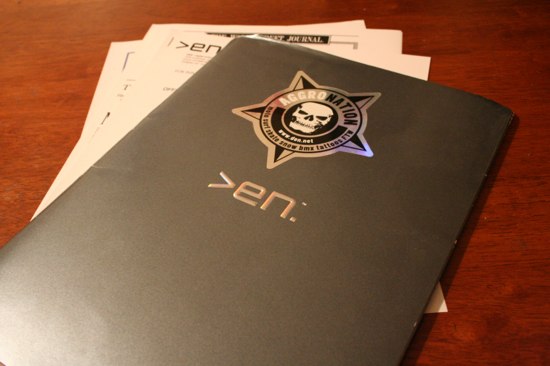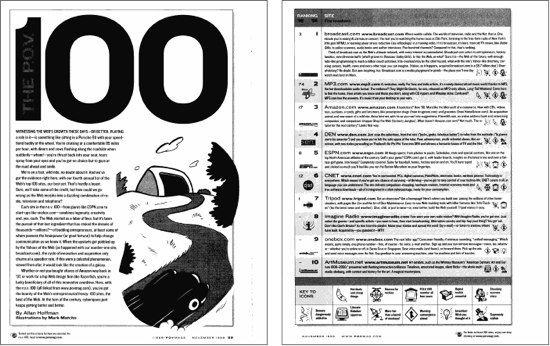The Oscar nominations were announced yesterday, which means it’s time again to see who’s winning in the eternal fight between the movie studios, the Motion Picture Academy, and the loosely-organized group of spunky kids known as The Scene.

Yesterday morning, along with an anonymous group of spectators, I updated the ever-growing spreadsheet now spanning the last nine years of Oscar-nominated film. I added this year’s 29 nominees to the list, a collection of 274 films in total. (You can read about more sources and methodology at the end of the entry.)
Don’t miss the Statistics sheet, which covers all the aggregate year-by-year stats. Download or view it below, or read on for my findings. As always, if you have any additions or corrections, let me know.
View full-size on Google Spreadsheets.
Download: Excel (with formulas) or CSV
Findings
Note: These numbers will change as we get closer to the ceremony, and I’ll do my best to keep them updated until Oscar day.
Continuing the trend from the last couple years, fewer screeners are leaking online by nomination day than ever. Last year at this time, only 41% of screeners leaked online; this year, that number drops again slightly to 38%.
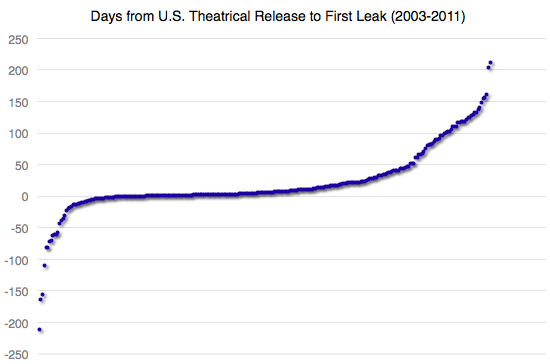
But if you include retail DVD releases along with screeners, 66% of this year’s nominated films have already leaked online in high quality. This makes sense; if a retail DVD release is already available, there’s no point in leaking the screener. But I think it’s safe to say that industry efforts to watermark screeners and prosecute leaks by members have almost certainly contributed to the decline.
The gap between theatrical and DVD release dates seems to have stabilized, hovering around 105 days for the last few years. This year, the gap between US release to first leak seems to have dipped slightly, from a median 23 days last year to 17 days.
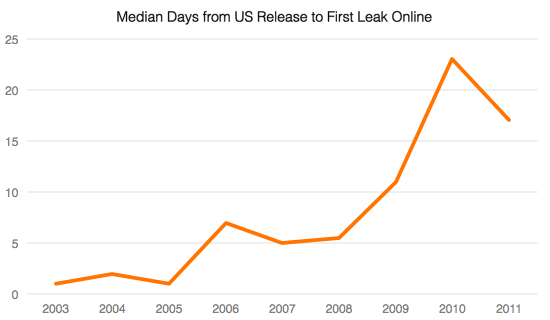
The chart below shows how camcorder and telesync leaks for Oscar-nominated films continue to decline in popularity, while nearly every nominated film is eventually leaked on DVD. (The only exception seems to be 2008’s Il Divo, which never appeared to get a US retail release.)
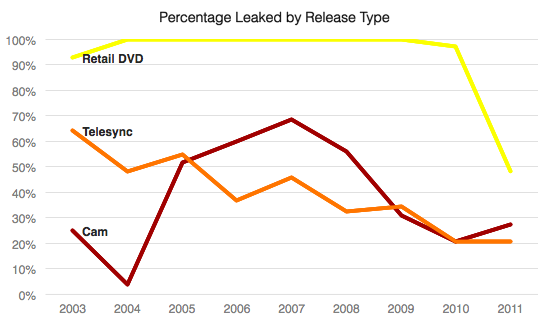
One prediction: The end of the DVD screener is near. This year, Fox Searchlight distributed three screeners with iTunes — 127 Hours, Black Swan, and Conviction — to all 93,000 voting members of the Screen Actors’ Guild, marking the first time a major studio’s used Apple’s service for screener distribution.
Voters get the additional convenience of being able to watch films on their computers, Apple TVs, iPads and iPhones, while studios save the time and expense of distributing physical media. If this experiment’s successful, it seems likely other studios will follow.
Miscellanea
Some random notes:
- This year, three films were leaked online within a day of their theatrical release — Iron Man 2, Alice in Wonderland, and Harry Potter.
- The Rabbit Hole screener was leaked online eight days before its theatrical release, while Winter’s Bone was the slowest to leak online (so far) at 125 days after its theatrical release.
- Oscar-nominated films tend to get released late in the year, but how late? More nominated films have been released on December 25 than any other day, but the median date is October 20.
- For the first year, the first high-quality leak of a film — Harry Potter and the Deathly Hallows — was a PPV rip, most likely from a hotel’s new movie releases on pay-per-view.
- Retail Blu-Ray rips are now frequently being leaked online now before retail DVDs, so I’ve modified the “Retail DVD” column to include them.
Methodology
As usual, I included the feature films in every category except documentary and foreign films (even makeup and costume design). I used Yahoo! Movies for US release dates, always using the first available date, even if it was a limited release. Cam, telesync, R5, and screener leak dates were taken from VCD Quality, with occasional backup from ORLYDB. I always used the first leak date, with the exception of unviewable or incomplete nuked releases.
Finally, the official screener dates came from Academy member Ken Rudolph, who lists the date he receives every screener on his personal homepage. Thanks again, Ken!
For previous years, see 2004, 2005, 2007, 2008 (part 1 and part 2), 2009, and 2010.


